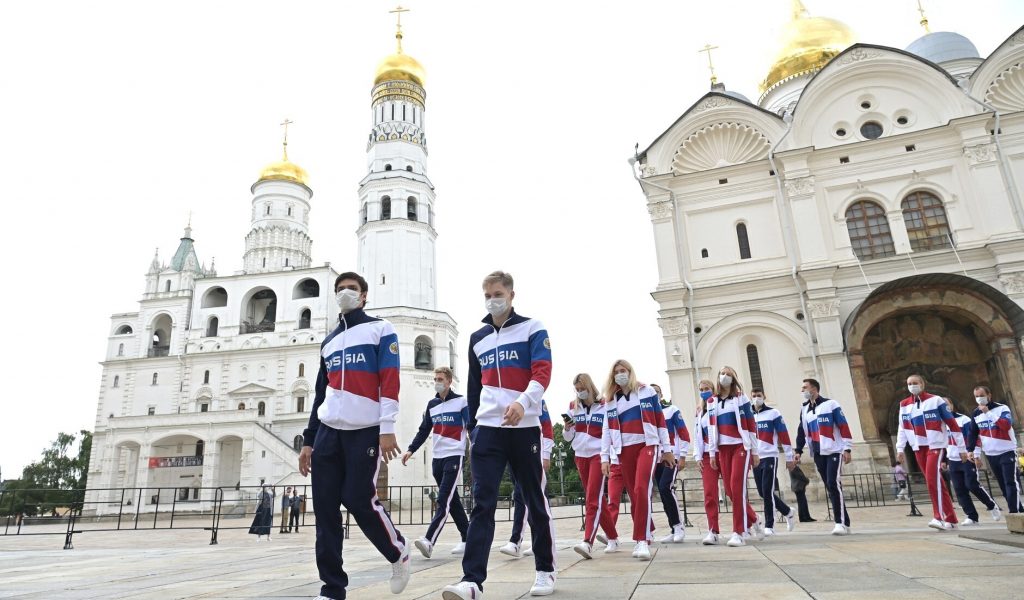Olympic chiefs face major questions over Russia’s participation in world sport

As the war in Ukraine rages on and with a past marred by state-sponsored doping, how can Russia expect to participate in international sporting events?
A diplomatic row has escalated in recent weeks between the International Olympic Committee (IOC) and the Ukrainian government, as IOC President Thomas Bach faces major questions about if and when Russia should be readmitted into world sport, following their invasion of Ukraine.
The IOC acted quickly in the wake of Russia’s invasion last February when they recommended indefinitely banning Russia and its ally Belarus from all international sports competitions. The invasion came just two days after the closing ceremony of the 2022 Winter Olympics in Beijing and was a violation of the Olympic Truce, signed by all United Nations member states as a commitment to maintain global peace throughout the Olympics and Paralympics. Russia had already been forced to compete under a neutral flag at the previous three Olympics due to its state-sponsored doping system.
Consequently, Russia, as in all areas of global cultural and political affairs, has been completely isolated from world sport for almost a year. Its exclusion is in the same vein to apartheid-era South Africa, which was subject to a sporting boycott for nearly three decades from 1964 to 1991.
However, in recent weeks there has been a softening of the IOC’s approach to Russia, ahead of next year’s Summer Olympics in Paris. Bach agreed to explore proposals for Russian and Belarusian athletes to participate next summer under a neutral flag, as they were able to do at the recent Australian Open.
This, predictably, has been met with anger from Ukraine and its allies. President Zelenskyy used his daily address on 27th January to appeal to President Bach, stating that “any neutral flag of Russian athletes is stained with blood” and inviting the IOC President to Bakhmut, a city almost completely destroyed by Russian forces last year, “to see with his own eyes that neutrality does not exist.”
President Zelenskyy used used address on 27th January to appeal to President Bach stating that “any neutral flag of Russian athletes is stained with blood”
Subsequently, Ukraine threatened to boycott next year’s Olympics if Russian athletes were permitted to compete under any flag, and many of its allies have pledged similar action. This creates a massive headache for the IOC, eager to avoid a repeat of the mass Cold War-era boycotts that plagued the Olympics in the 1980s.
For many, allowing Russians to compete under a neutral flag offers a compromise solution, avoiding any Russian iconography or national celebrations. Some view Russian athletes as innocent bystanders, many of which are opposed to the war – 2020 Olympic tennis champion Andrey Rublev famously wrote “no war please” on the camera lens at a tournament last year.
On the other hand, however, much of the Russian sporting establishment has supported Putin’s illegal war in Ukraine. Many sports stars attended a pro-war rally alongside Putin in Moscow last March, including triple Olympic cross-country skiing champion Alexander Bolshunov, some even displaying the nationalist “Z” symbol. Moreover, Russia’s invasion has devastated Ukraine’s sports industry; over 180 Ukrainian athletes have been killed, and its sports facilities destroyed.
It must also not be forgotten that Russia has been banned from the Olympic Movement for far longer than the duration of the war, having faced a suspension for state-sponsored doping since 2018. This leaves us wondering why Bach is so desperate to bring Russia back into the fold, when it has caused so much damage to world sport, including fixing an entire Olympic Games at Sochi in 2014 through an elaborate doping system.
Allowing Russian athletes to participate at next year’s Olympics in any capacity will cause far more issues than it solves. Even under a neutral flag, Russia could use its athletes’ success as part of its nationalist propaganda. Sporting sanctions may seem trivial, but isolating aggressor countries from the cultural and sporting world can play a key role in bringing about the end of the conflict.
Either way, it is paramount that the IOC solves these questions soon, with qualifying competitions for Paris 2024 beginning in earnest in the coming months.


